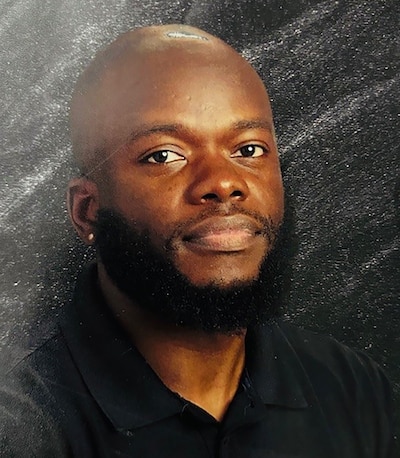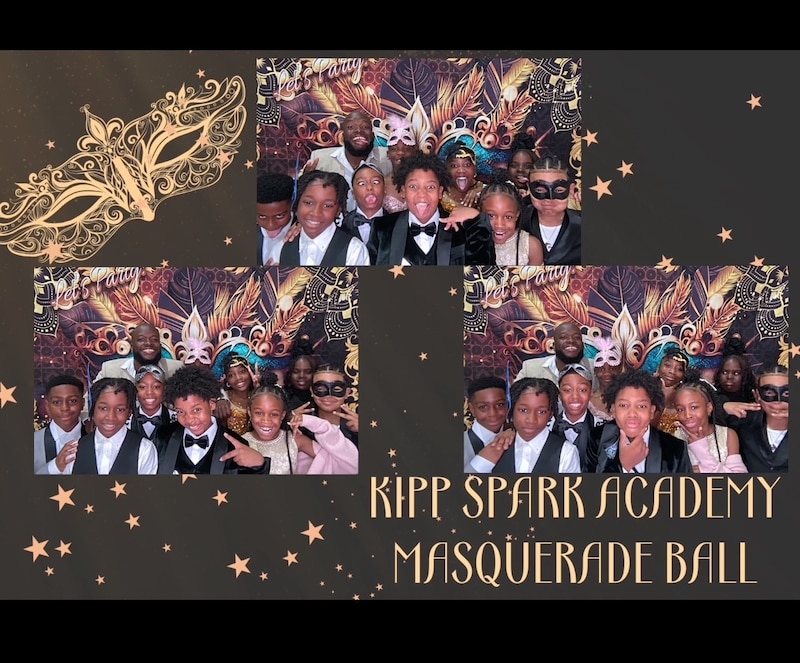Sign up for Chalkbeat Newark’s free newsletter to get the latest news about the city’s public school system delivered to your inbox.
Fourth grade is an exciting time for students. Middle school is within sight, and they can start to practice more autonomy with support and guidance from trusted adults.
That’s what Carl Thomas, fourth grade lead math teacher at KIPP SPARK Academy in Newark, loves most about the grade level he teaches.
“It’s the sweet spot of a child beginning to come into themselves and becoming more independent,” Thomas said.
Several years ago, Thomas transitioned from a corporate office job to working in the classroom. He’s now been an educator for six years, heading into his third year at his current school this fall.
The first day of school for most 6,000-plus KIPP students in Newark is Aug. 25, with entry grades of kindergarten, fifth, and ninth grades starting days earlier. One way Thomas and his co-teacher are preparing is by looking over their new cohort of students’ performance data from last school year to see “where we need to meet them academically and what resources we can provide them with.”
Mostly, Thomas added, he’s looking forward to helping his students become the best version of themselves, academically and socially.
“Often, the majority of scholars struggle with confidence in self, which tends to impact other areas,” Thomas said. “As a teacher, it is our job to help build it and positively pour into them as much as we can.”
Thomas talked to Chalkbeat about why he decided to switch careers to education, how he supports his students when events outside of the classroom affect them, and the ways his own mixed experience with school informs his work today.
This interview has been edited for length and clarity.
How and when did you decide to become a teacher?
Before teaching, I was in my fourth year of working in corporate America as a compliance analyst in Manhattan. Teaching was something that always resonated with me, but it had always been at the back of my mind. Growing up in Maplewood, New Jersey, in my teenage years, I worked as a camp counselor for many summers. During college, I interned with the Office of Youth Services in Elizabeth, New Jersey.

Throughout those experiences, I was always teaching and forging relationships with the kids and their families. I loved that part of the work.
Teaching started to creep to the forefront of my mind when my then-girlfriend (now wife) was working as a teacher in Newark. When we talked about our days, the stories she shared often reflected my experiences as a child attending schools in East Orange and Newark. I said to myself, ‘I could do that.’ I began to realize that teaching was the ideal way to utilize my time to make a meaningful impact. My own education journey was rocky, so there was always a love/hate relationship that existed before teaching. Once I began my journey as an educator, I hit the ground running, and the rest is still being written. It’s safe to say my relationship with education now has shifted to all love.
What’s your favorite lesson to teach and why?
This is a tricky question to answer. I enjoy teaching anything I can to my students. I’m always taking all lessons or materials and making connections to the real world. For example, when teaching students fundamental geometry, such as parallel and perpendicular lines, I reference the neighborhood that the school is in. Many of the students live nearby, so it offers a real-life connection to understand what parallel and perpendicular lines are when discussing their streets and how they intersect or don’t intersect. I teach math, but I have experience with literacy as well. Being well-rounded has helped me tremendously to understand students’ struggles and effectively address them. I simply love and enjoy teaching.
What’s something happening in the community that affects what goes on inside your classroom?
I teach in Newark’s Central Ward. My students come from all different types of backgrounds and situations. There’s not one thing that affects what goes on inside my classroom, but many — some positive, others negative. For example, on a given day, one student might be anticipating a new addition to their family, while another scholar could be joining us in the middle of the school year from a different country.
Last school year, one of my scholars lost her older brother to gun violence. I supported her by hosting lunches with her and some chosen friends, offering ‘brain breaks’ during instruction, and checking in with her frequently to help her feel safe and cared for. She wound up finishing the year strong, both academically and in her attendance. This reminded me that no matter what’s going on outside of the classroom and in our community, creating safe spaces where students thrive emotionally, socially, and academically is really important.
How do you approach news events in your classroom?
When there is big news, more times than not, it’s something I have the night before to prepare for and decide how or when I can discuss it with my students. I incorporate the news into our morning meetings to start our day or at our end-of-day meeting. This past school year, after the elections, we carefully, respectfully, and briefly discussed the results of the presidential elections and what that meant for our country. My co-teacher and I created a brave space for scholars and adults to express themselves.
What’s something that stands out about teaching fourth graders?
I love teaching fourth grade. This is the foundation-setting year before they transition to middle school. Setting the tone for social and emotional development is where I thrive. Teaching kids how to be more independent, socially and emotionally aware, advocate for themselves, and take pride in themselves and their work are things that stand out about teaching fourth graders.
Seeing the genuine growth at the end of the school year is a wonderful feeling. Knowing you genuinely and positively impacted your students’ lives forever is something I live for. Truly a great feeling.

Tell us about your own experience with school and how it affects your work today.
Well, as I mentioned earlier, my relationship with school was tough. Academically, I did well. Behaviorally, school was difficult for me. As I look back at my educational experiences, I use them as a sort of guide to help mold me into being the best teacher that I can be. Teachers and administrators never took the time to understand the root cause of my problems. They usually ruled with an iron fist, which resulted in suspension and expulsion as the first choice of discipline. I am an educator who takes the time to understand the root cause of an issue that a troubled scholar may be having. If I can’t successfully address the issue, I will find a peer who can, as one of the ways to avoid suspension as an outcome.
From K-12, I had only one teacher who took the time to see me for being more than just a troubled child. Her name was Mrs. Kunzman — may she rest in heavenly peace. She put forth the effort in getting to know me personally. She saw that I needed guidance and found ways to provide that. She took on the responsibility of being my mentor.
I am an educator who sees every student that crosses my path for who they truly are and what they can be. I foster genuine relationships with them and their families. Kids tend to give one-word answers and move on, but I make it my business to make it a conversation. This allows students to truly open up and become comfortable, which translates to taking risks academically, building confidence, and being better than they were the day before.
What are some of your hobbies, and how do you relate them to the classroom?
As a huge fan of football and basketball, I bring those passions into my classroom to keep students engaged and motivated. My classroom is Georgetown Hoyas-themed, and we use a small basketball or football during lessons that students catch when answering questions and earn prizes for correct answers or giving good effort.
I also created the first after-school flag football program at our school, which led many students to sign up for local tackle football teams. These sports help me connect with students, give them healthy outlets for their energy, and build strong relationships rooted in teamwork and discipline.
A translation of this story was provided by The Latino Spirit, in partnership with Montclair State University’s Center for Cooperative Media and is supported financially by the NJ Civic Information Consortium. The story was republished under a special content-sharing agreement through NJ News Commons’ Spanish Translation News Service.
Catherine Carrera is the bureau chief for Chalkbeat Newark. Contact Catherine at ccarrera@chalkbeat.org.






